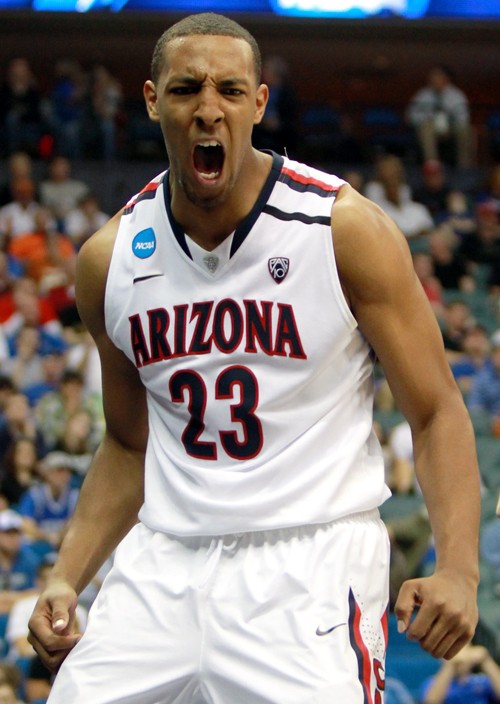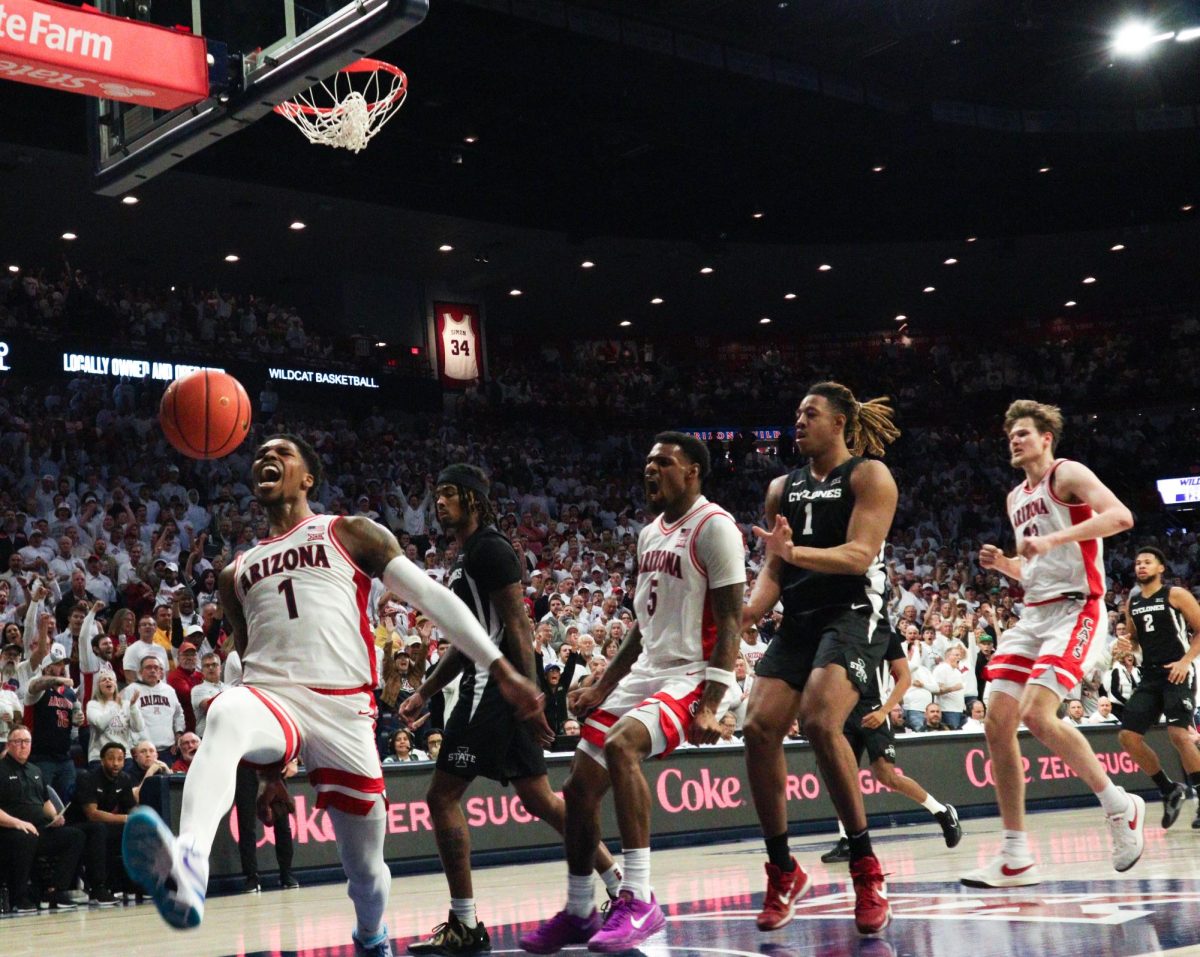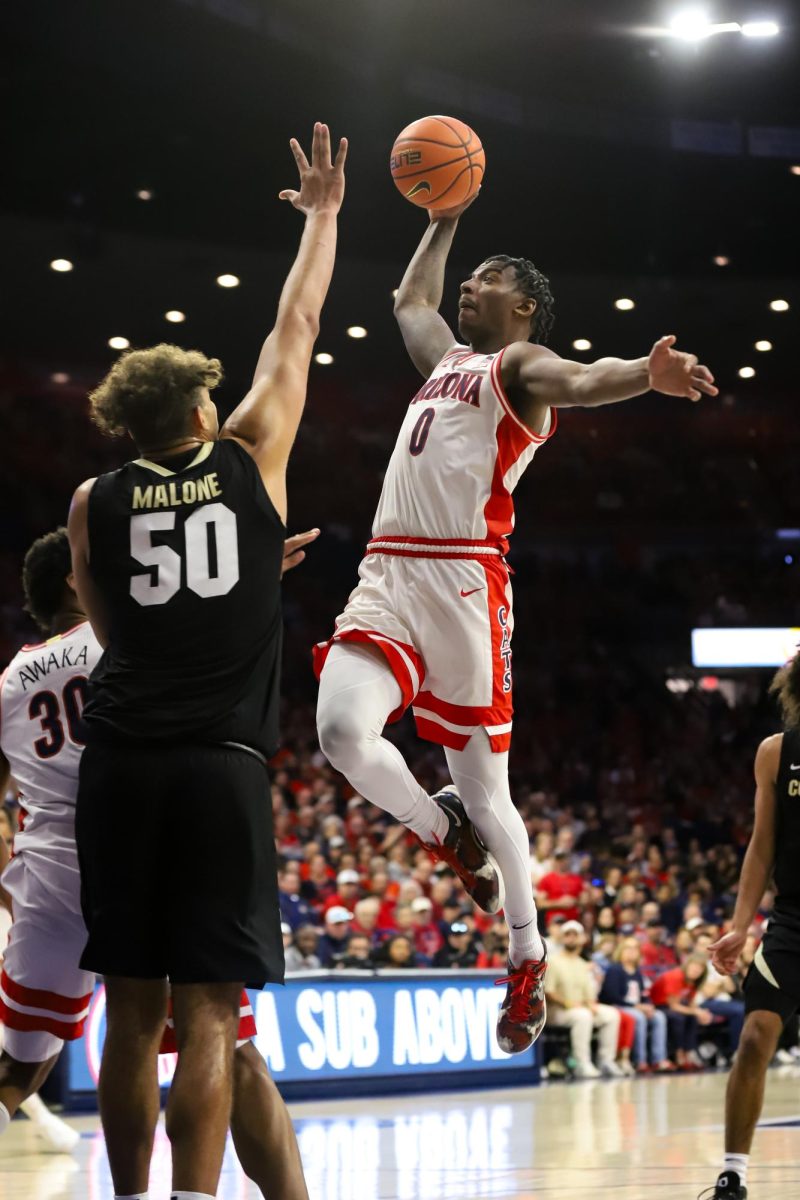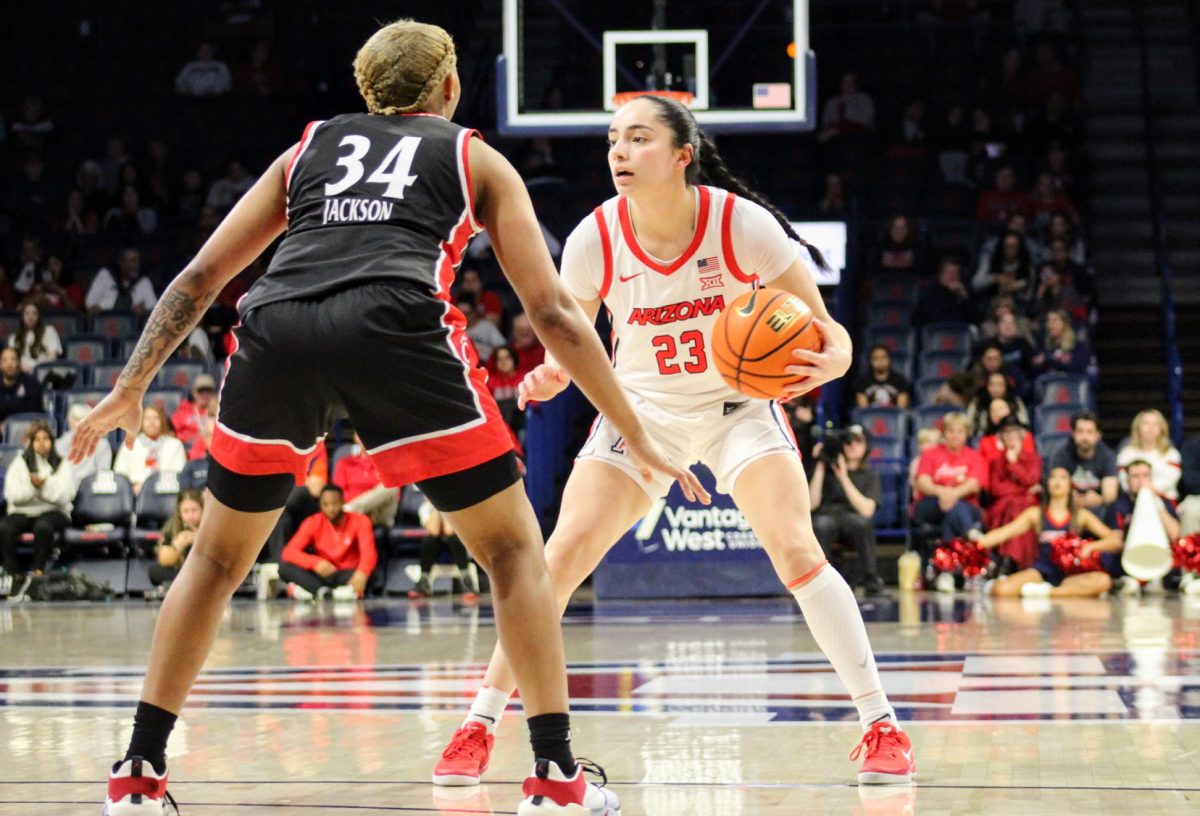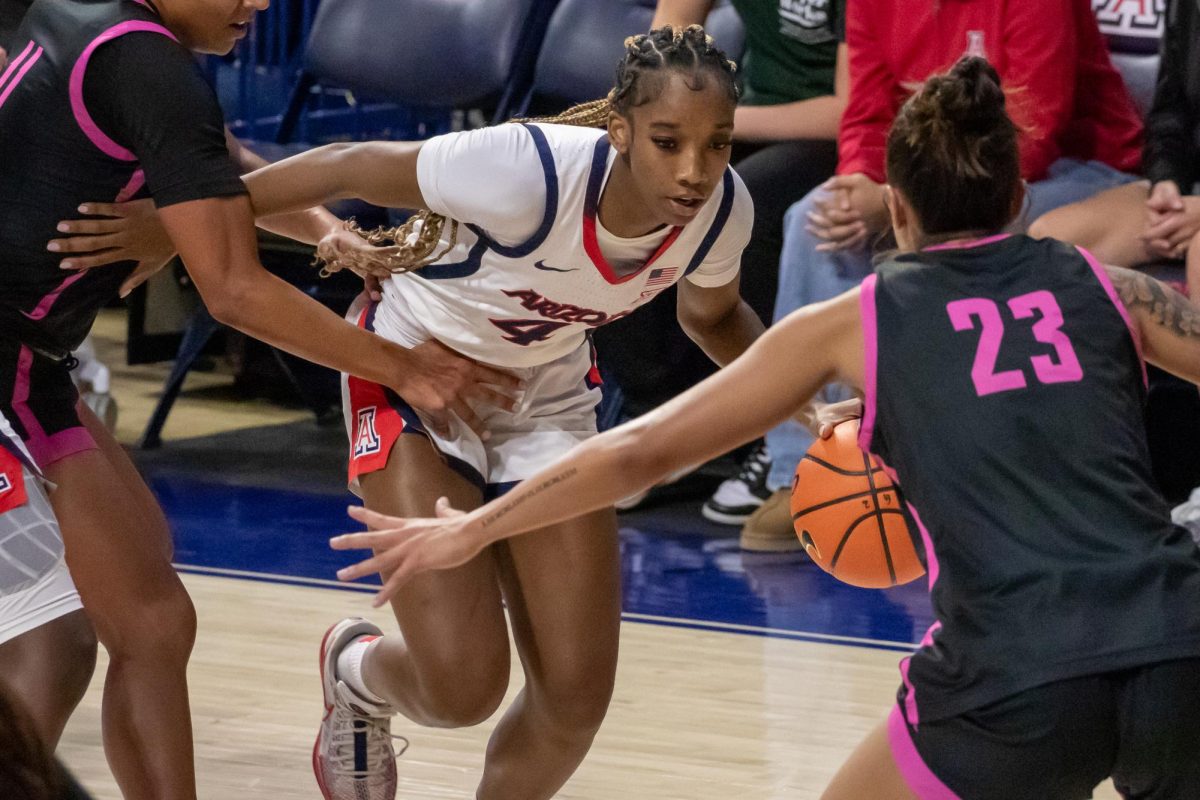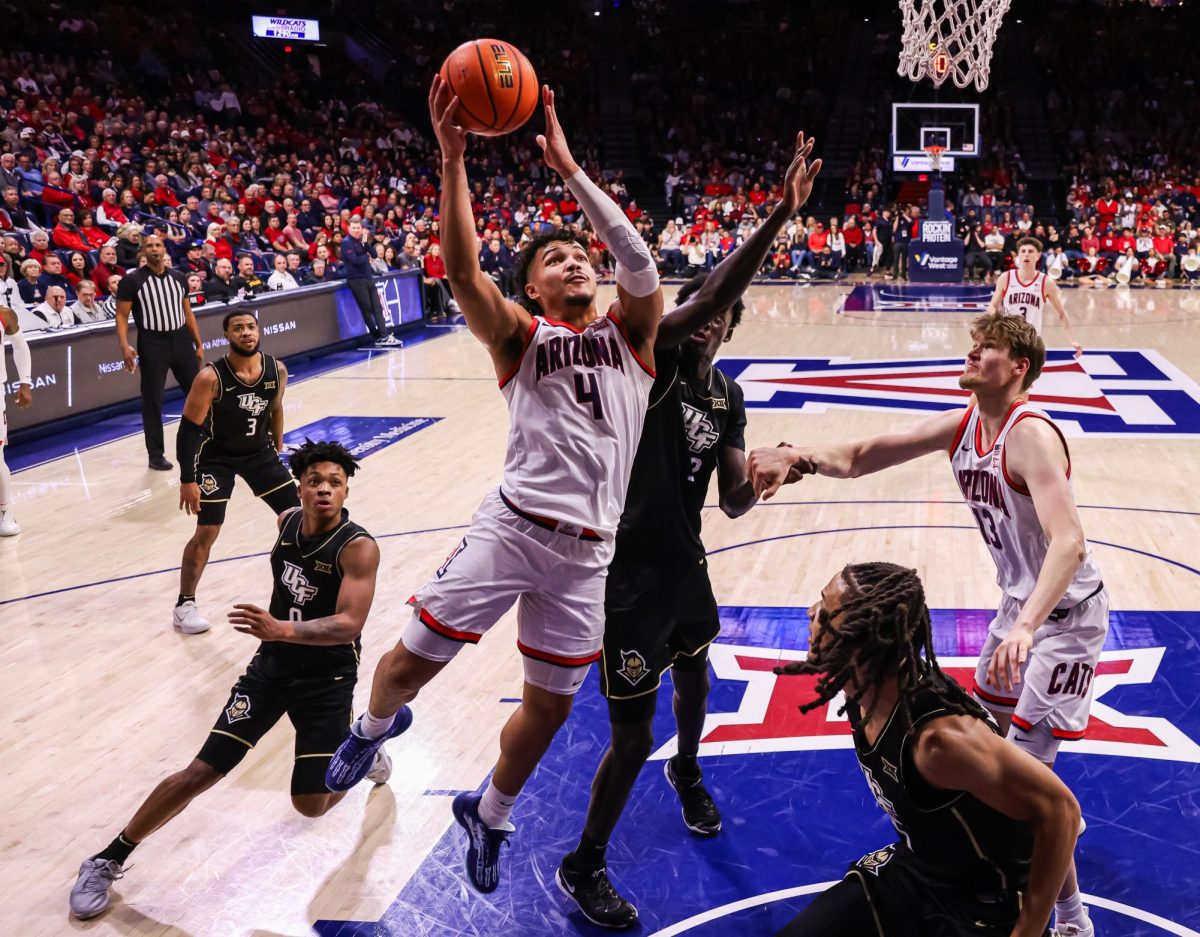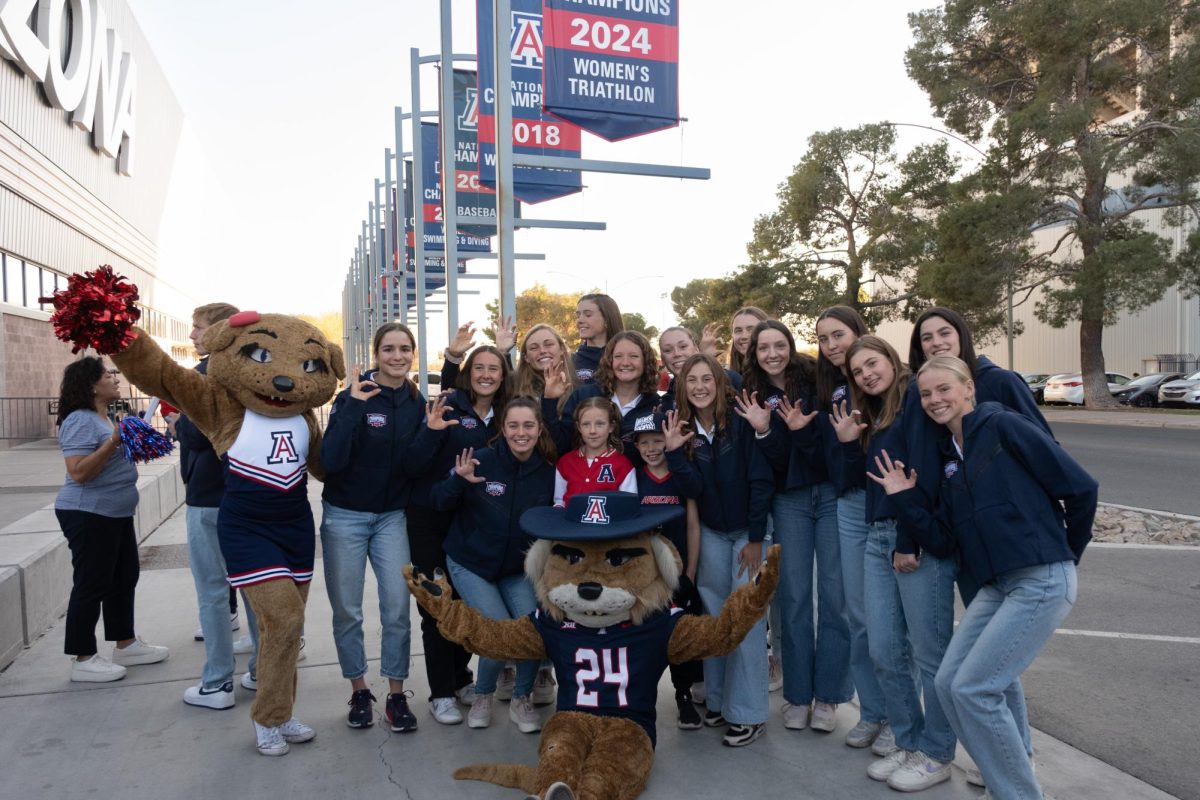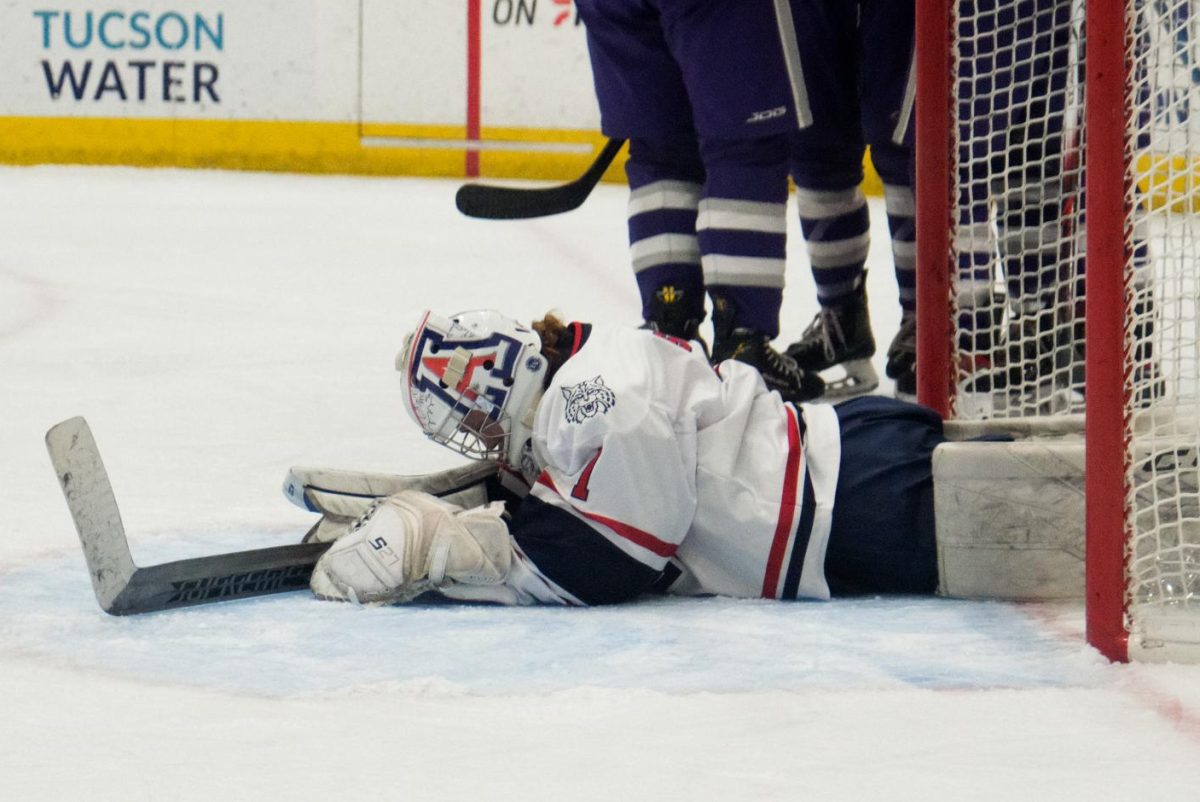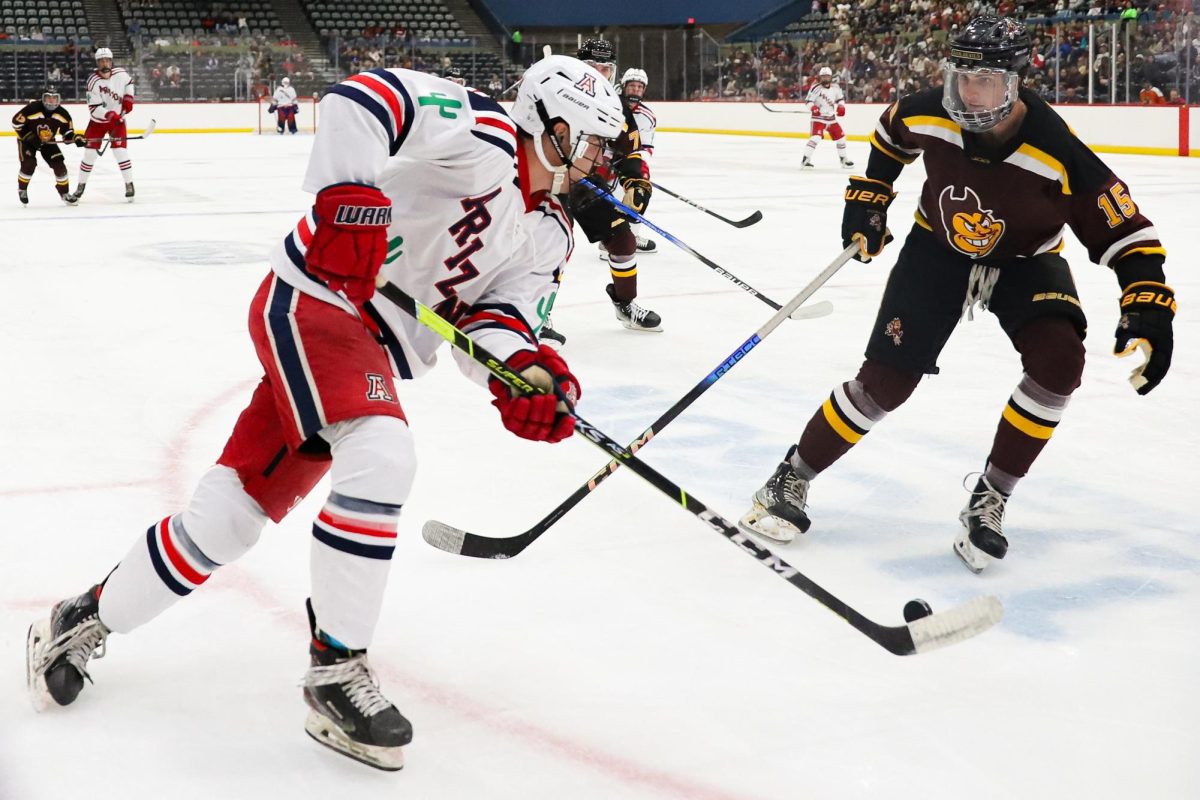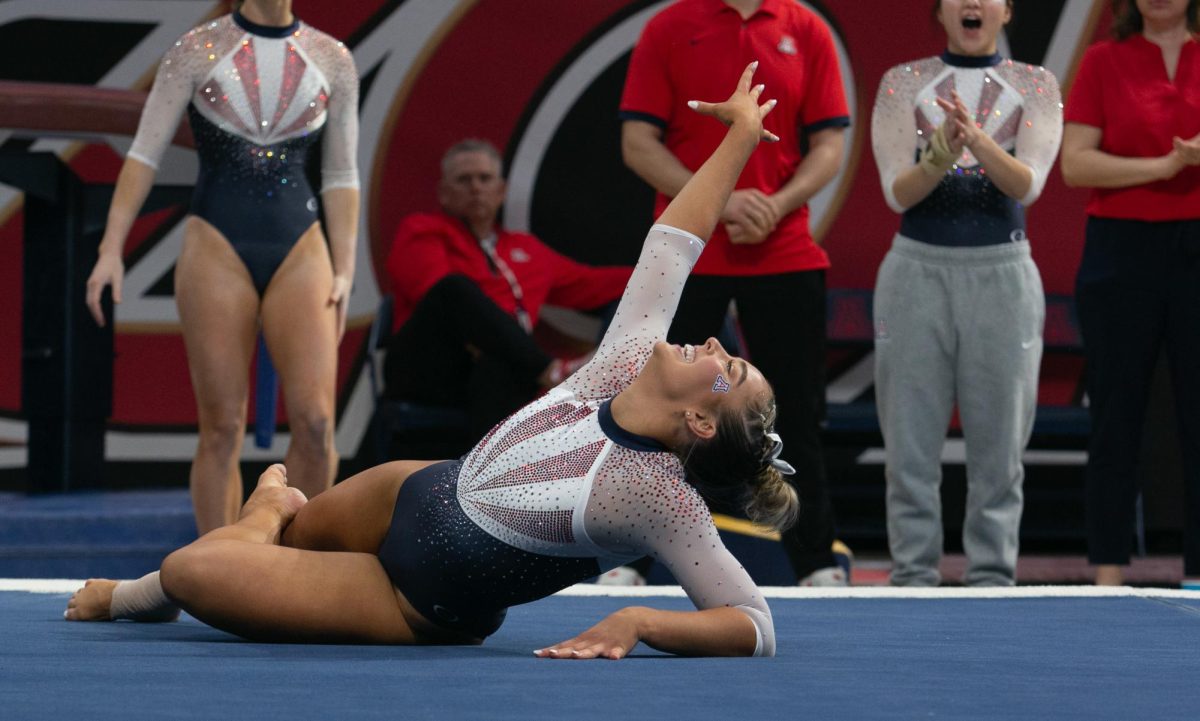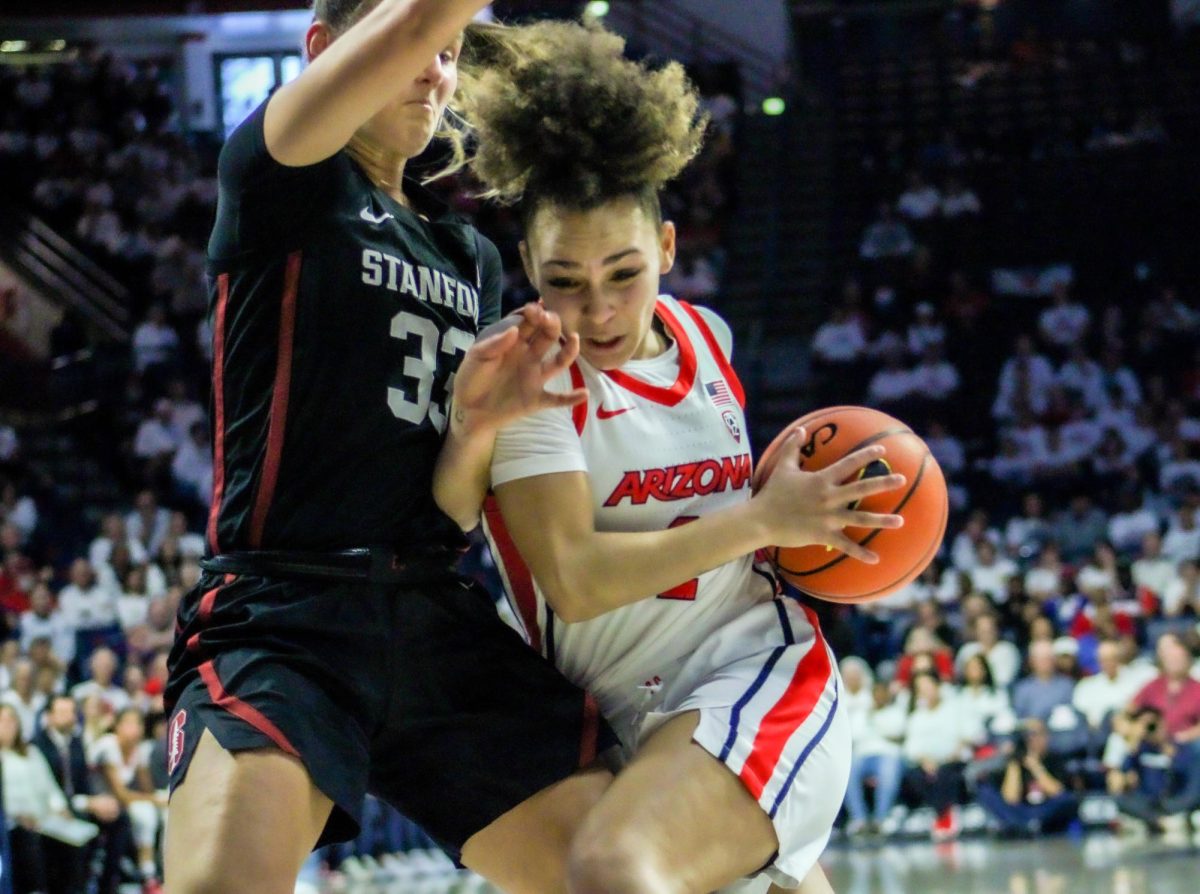Only 19-years-old, Arizona forward Derrick Williams, a soon-to-be top-5 NBA Draft pick, realizes his days of being a kid are now behind him.
He knows he’s going to miss it. College will always be the best time in his life, former Wildcat and current Lakers forward Luke Walton told the sophomore while he was making his decision to enter the NBA Draft.
“”I believe him,”” Williams said Wednesday at his final collegiate press conference.
Still, it’s on to the professional ranks.
The 6-foot-8, 240 pound sophomore leaves Arizona at the end of a crossroads, being the most-pointed-at reason to why the Wildcats returned to national prominence following a half-decade of mediocrity.
And already, Williams knows his lifestyle is changing.
He’ll turn 20-years-old next month but already has bounced between his home in La Mirada, Calif., to work out and Tucson to finish up the semester. Meanwhile, he’s still in the decision-making process of hiring an agent.
In a journey that he couldn’t have fathomed two years ago, Williams relates — seeks advice, even — to the music he listens to.
Just like Williams, rapper Dr. Dre went from unknown kid to star.
“”My life is going to change. Personal space is going to go away a little bit,”” Williams said, almost remorsefully. “”That’s what I like most, my personal space. It just comes with it. If you’re a professional athlete, you just got to deal with it.””
Admittedly, Williams is an introvert of sorts.
Those Dr. Dre songs and frequent phone number changes during the past season kept him away from all the “”Are you going league?”” questions from his peers, Williams said. Music, among other things, kept him away from the negative distractions, and Williams never lost sight of his past, where some called him a borderline Division-I prospect.
“”That’s the reason I played so well,”” he said. “”I didn’t have anybody on the outside world trying to talk to me, trying to convince me to do this or do that.””
It’s part of a maturing process that Williams says kept him indoors instead of going out with his college friends when he shouldn’t, humble instead of getting caught up in the hoopla of being a player of the year candidate in the NCAA.
“”I don’t think I’ve changed at all,”” Williams added. “”I’m the same person I was when I did my first interview. I matured a lot since I got here.
“”Hopefully I keep maturing. Especially at the next level, I have to. It’s not all fun and games. It’s your job.””
The Decision
With a strong connection to his mother and head coach Sean Miller, whose team would surely be on the brink of an NCAA championship if he returned, Williams had two meaningful voices in his head when making the decision to go to the NBA.
In the end, though, he took a few weeks to make his own decision — nobody made it for him. Those within his circle only helped weigh the pros and cons of it all.
“”The cons of coming back, nobody wants to think about getting hurt,”” Williams said. “”It crossed my mind at some point. But that’s not the main focus.””
On the plus side of returning to Arizona, there was the gravity of a potential national championship. Potential, though, is a risky road to go down, Williams said.
He pointed to the very team Arizona beat in the Sweet 16 for proof. Duke seniors Kyle Singler and Nolan Smith returned to chase after an NCAA title only to be knocked out by Williams and the Wildcats.
“”I think that everybody wants to win a national championship, but it’s not guaranteed,”” Williams said. “”If it was guaranteed, if I knew 12 months from now we’d win a national championship, of course I’d stay.””
Former Wildcats also had their share of input. Williams said he spoke numerous times with Walton and took great weight in listening to former NBA player and Suns general manager Steve Kerr.
It was widely agreed that Williams was a top-5 pick, averaging nearly 20 points and eight rebounds during his sophomore season.
The consensus? Top-5 lock, and you’ve got to go.
He played the entire postseason and then-some with a broken pinky, a blessing in disguise that Williams thought helped his draft stock despite the team keeping it under wraps until Wednesday.
After the injury, Williams initially told coaches he’d be out. But on game-day, he realized he wanted to be on the hardwood with his teammates.
“”If I would have just cracked it half an inch lower, I would have had to have surgery,”” Williams said. “”If I had to sit out, I’d sit out, but I didn’t want to sit out for no reason.””
You know what happened thereafter.
And when the season ended, sure-fire lottery picks like Perry Jones III of Baylor and Ohio State’s Jared Sullinger returned to college. Despite a likely NBA lockout, Williams made the decision anyway.
“”I think it was the best opportunity for me and my family to leave this year,”” Williams said. “”If you’re top-5, there’s really no reason to go back.””
The road ahead
No matter where the ping-pong balls may fall, Williams will be happy just to be in the NBA.
Fulfilling a promise to his mother, he’s still enrolled in school to finish out this semester. Over the course of future NBA offseasons, Williams will work to earn his degree.
In the upcoming months, Williams will choose an agent, continue to work out and likely wait in the midst of an NBA lockout. Though he doesn’t expect it to go the entirety of the season, Williams said he’ll even return to UA for classes if a prolonged lockout shows no end in sight.
Whenever he makes his NBA debut, Williams doesn’t really care what position he plays, nor the numbers that he produces.
“”I’m not LeBron (James), I’m not J.R. Smith. But I can jump; I can shoot,”” Williams said. “”I can do basically everything a good player can do.””
He doesn’t have any grand expectations, either. It’s the same attitude he came to Arizona holding onto — just play ball, and it’ll work itself out. Though a couple million dollars could go quickly, Williams knows where he’ll put his first few paychecks.
He’ll give it back to whom he owes much of his success, the woman who gave him a level head and a strong work ethic.
“”I’ll probably say a car,”” he said, adding, “”My mom doesn’t want to move, (so I’ll) fix up the house. Whatever she wants in it, she can have. I owe her a lot.””



